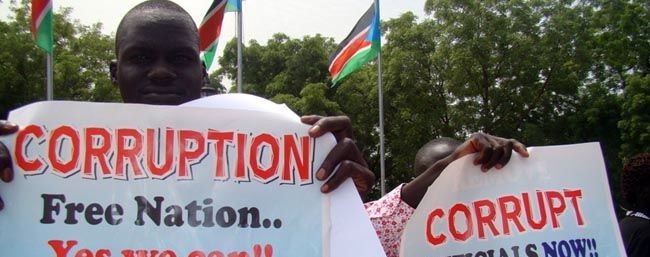South Sudan’s only thinktank has recommended that legislation be amended to give the Anti-Corruption Commission prosecutorial powers. The Institute also recommended that South Sudan have “a competent and independent judiciary.”
South Sudan’s Anti-Corruption Act of 2009 empowers the Anti-Corruption Commission to investigate cases of suspected corruption. However, where its findings warrant prosecution, it must refer them to the Ministry of Justice for action, rather than prosecute them itself.
The Sudd Institute is an independent research organization that was founded with the support of international donors. It says its mission is “to promote informed and accountable policy and practice” in South Sudan.
In a policy brief dated 17 January, the institute stated, “a strong Anti-Corruption Act that grants prosecution powers is urgently needed.”
The policy brief, titled ‘South Sudan’s Anti-Corruption Efforts and Poor Global Ranking,’ also pointed out that South Sudan has been ranked among the top most corrupt countries in the world, according to Transparency International’s Corruption Perception Index released in December 2013.
The thinktank pointed out, “the Southern Sudan Anti-Corruption Commission Act, 2009 has not been amended to include the prosecutorial powers for the Commission. No officials investigated by the Commission have been prosecuted so far.”
“Corrupt incidents worth mentioning here by the virtue of being in the public knowledge include: (1) Government vehicles scandal, (2) Dura Saga, (3) Alleged loss of 60 million dollars meant to transition the SPLM into a modern party, (4) Alleged loss of millions of dollars meant to construct John Garang Military Academy, (5) Alleged loss of about four billion dollars thought to have been stolen by persons in the presidential list of 75, (6) Theft of money from the President’s office, and (7) the purported illegal transfer of over eight million dollars for payment of fire safes which led to the dismissal of ministers of Finance and Cabinet Affairs,” stated the policy paper.
Nhial Tiitmamer, co-founder of NewSudanVision.com, and Abraham Awolich, a founding member of Sudd Institute, were identified as authors of the paper.
Photo: Members of the South Sudan Civil Society Alliance (SSCSA) during a peaceful demonstration calling for the prosecution of corrupt government officials, 13 June 2013 (Gurtong)




